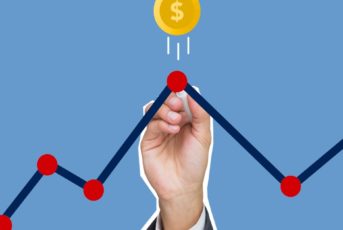
The question on investor’s minds is how will the markets react to the elections next month and will a contested election result in more volatility? We have already seen much volatility in the markets with large daily swings. Most experienced investors feel that markets are overvalued and don’t reflect economic conditions. We believe that in the near-term (5 years or less), markets will remain volatile and that some sectors are overvalued while others are undervalued. These volatile days/weeks create buying opportunities because in the long-term, we believe that stocks are the best investment to save for retirement and to beat inflation.
Don’t try to time the markets ahead of the elections or in any case, ever. Also, avoid making investment decisions based on campaign promises, because they are rarely, if ever, executed. Our philosophy at ACap has alway been that if your holding period is at least 5 years, you should invest in stocks. If your cash is earmarked for the near-term such as a home purchase or remodel within 5 years, then you should not invest. While we don’t know if stocks are overvalued because no one can predict the market and the economy, there seems to be a disconnect between Wall Street and Mainstreet. As we speak with clients and business owners, there is also a growing concern that the economy has not really felt the full effects of Covid. As a result, we are cautiously optimistic and continue to hold some cash for the reasons below.
Concentrated Gains:
Despite the impressive market recovery since March, if you look closely, the returns are all concentrated among five (5) companies: Apple, Amazon, Microsoft, Facebook, and Google. The rising tide has not lifted all boats. Morningstar published an interesting analysis on August 27 where they compared the return of the S&P 500 without these 5 companies and the result was that the S&P 500 would actually be down 6 percent. That is not a broad market recovery.
Unemployment:
Unemployment is high and layoffs are increasing. Unemployment started with blue-collar workers within hospitality and travel, but has now expanded to white collar workers with the recent layoffs announced by Disney, Warner Brothers, Wells Fargo, Allstate, Boeing, and more. Technology has not been immune as Salesforce, Microsoft, Uber, and Yelp have all also announced cuts in their workforce. Companies are having a very difficult time forecasting how their business will operate next year.
Day traders on the rise:
These are not your typical day traders who pour over financial statements and subscribe to expensive Bloomberg terminals to analyze trends. These are new investors with the FOMO (Fear Of Missing Out) and greed for a quick buck. Schwab, E-Trade, Fidelity, and Robinhood all reported record numbers of new accounts as more people are working from home and watching YouTube videos of how people are making easy money trading online. Overlay this with the fact that platforms like Robinhood sell customer trade data to hedge funds who profit from these causal day traders and the result is a reverse Robinhood effect.
Bonds yields don’t lie:
Stock investors are optimists and never question why the market goes up, they just celebrate and brag about their financial prowess. Bond investors are more cautious because a bond investor wants to know if they will get their money back. As a result, bond investors pour over a company’s financial statements to see how financially sound a company is. A perfect example is comparing Tesla stock against its bonds. Tesla stockholders are ecstatic because the stock keeps rising (especially after a stock split), but Tesla’s creditors (it’s bondholders who lend it money) who actually read the company’s financial statements are less enthusiastic. The price of Tesla bonds is so low that it is considered junk status (equivalent to a subprime borrow).
Looking for an independent fiduciary financial advisor who can advise you on investments, retirement, real estate, alternative assets, and taxes? Contact ACap Advisors & Accountants to schedule a free initial consultation. Our clients include individuals, small businesses, entrepreneurs, and anyone serious about saving and investing for their future.









